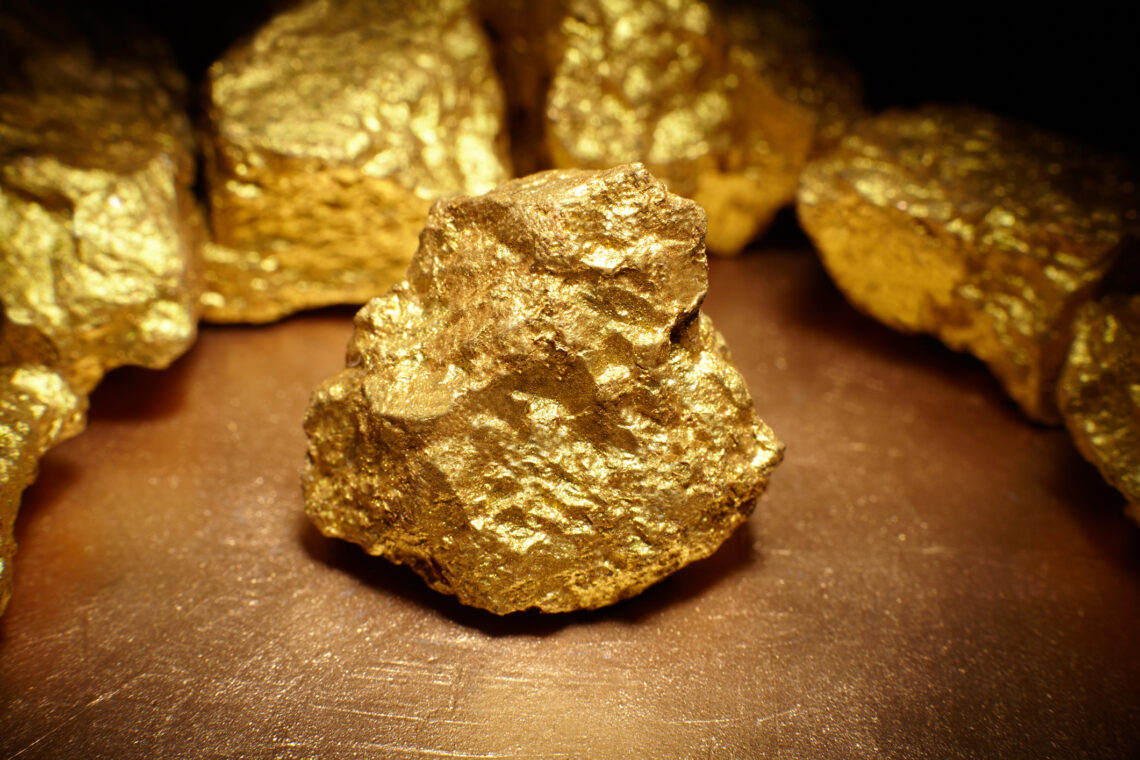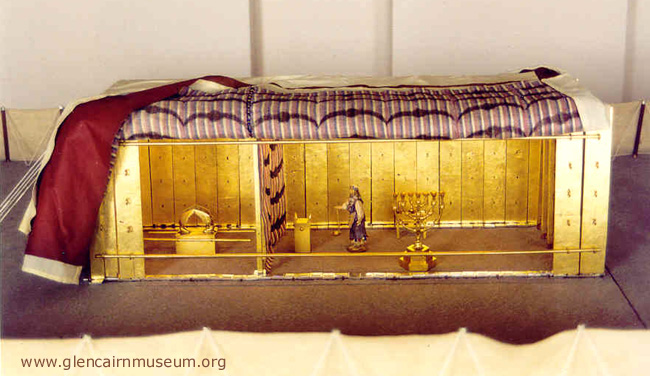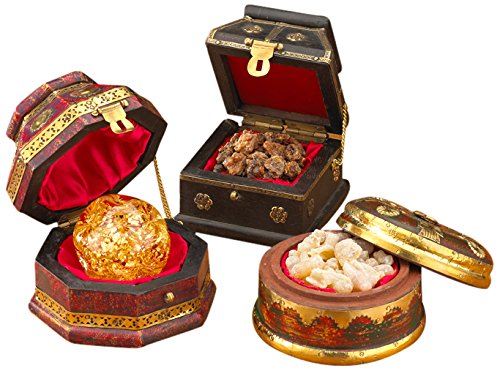
Gold
Dense and lustrous, gold (chemical symbol: Au) is a precious metal categorized with the Group 11 (Ib) elements in the periodic table. (4)
The precious metal is named more frequently than any other in the Bible (430 times in the NET). (2) A large number of references to gold in the Bible springs a paradox on us: valued because of its rarity and difficulty to attain, gold is yet one of the most frequently mentioned physical phenomena in the Bible. (3) It was imported from Uphaz (Jeremiah 10:9), Raamah (Ezekiel 27:22), Sheba (1 Kings 10:2), Havilah (Genesis 2:11), and Ophir (1 Chronicles 29:4; 2 Chronicles 8:18), all sites that have not yet been located. Occasionally gold was acquired as loot (Exodus 12:35; Judges 8:26), but it was often obtained through commercial enterprises (1 Kings 10:14–24). (2)

The Bible employs thirteen different words for gold that describe the metal in various forms and usages. Most prominently, perhaps, gold was used for jewelry, including necklaces (Song of Soloman 1:11), rings (James 2:2), and other unspecified items (Exodus 3:22). Gold also played a part in public worship as gold was employed in the tabernacle and the temple. The ark of the covenant was covered with gold (Exodus 25:11). Most of the tabernacle furniture (1) was gold-plated, and the high priest’s clothing, crown, the ephod, and breastplate (1) were either adorned with gold or fashioned from pure gold (Exodus 39:2–30). In Solomon’s temple, the entire inner sanctuary was overlaid with gold, including the cherubim, carved palm trees, and flowers (1 Kings 6:14–31). Likewise, the book of Revelation indicates, in heaven, the elders wear golden crowns (Revelation 4:4), and the new Jerusalem will be constructed of pure gold (Revelation 21:18). (2)
The Bible also records the misuse of gold. In warning the people of Israel against making idols, God tells Moses to specify the error of using gold or silver in this way (Exodus 20:23). When the Israelites turned idolatrous, they worshiped a golden calf fashioned by Aaron (1) (Exodus 32:2–4; cf. Deuteronomy 29:17; 1 Kings 12:28; Isaiah 2:20; Revelation 9:20). Tragically this was not the last time in their history they worshipped idols (Exodus 32:2–4; Judges 8:24; Psalms 115:4; Acts 17:29). Such idols were either solid gold or carved from wood and then covered with gold (Isaiah 40:19; Habakkuk 2:19). But gold has no right to such honor; as God points out through Haggai, the world’s silver and gold ultimately belong to him (Haggai 2:8). (3)

Gold’s Value
The primary quality of gold in these references is its value. Because gold is rare and therefore precious, it was used in biblical times to manufacture articles viewed as particularly special, notably furniture and other artifacts for the tabernacle (Exodus 25–26; 28; 30–31) and the temple (1 Kings 6–7). We find a similar correlation between gold and “noble purposes” in 2 Timothy 2:20. (3)
Clearly associated with riches and power (Isiah 60:17), the possession of gold is one of the distinguishing marks of the wealth of Abraham (Genesis 13:2) and the royal authority of Joseph (Genesis 41:42) Xerxes (Esther 4:11), and Mordecai (Esther 8:15). Royal crowns are usually made of gold (2 Samuel 12:30; 1 Chronicles 20:2; Esther 8:15; Psalms 21:3; Zechariah 6:11; Revelations 4:4; 9:7; 14:14). King Solomon’s greatness is underlined by the fact that he “made silver and gold as common in Jerusalem as stones” (2 Chronicles 1:15). The relative merits of silver and gold emerge from the levy imposed on Judah by Neco, king of Egypt: a hundred talents of silver and a talent of gold (2 Chronicles 36:3). (3)Whenever a biblical poet wants to signal superiority, gold is the image of choice. In the Song of Songs the beloved uses the imagery of gold three times in one description of her lover: referring to his head, arms, and feet (Song 5:11, 14, 15). In Job, the value of wisdom is indicated by the fact that “it cannot be bought with the finest gold” (Job 28:15, cf. Proverbs 28: 16, 19). Along similar lines, the psalmist identifies God’s laws as being “more precious than gold, than much pure gold” (Psalms 19:10; cf. Psalms 119:72, 127). In Proverbs, wisdom is described as a better investment even than gold (Proverbs 3:14; 8:10; 16:16). (2)
Gold became such a touchstone of value that in NT times, some apparently thought that the gold that overlaid Herod’s temple was more significant than the temple itself, an idea that Jesus condemns in no uncertain terms: “Woe to you, blind guides! You say, ‘If anyone swears by the temple, it means nothing; but if anyone swears by the gold of the temple, he is bound by his oath.’ You blind fools! Which is greater: the gold, or the temple that makes the gold sacred?” (Matthew 23:16–17). (3)
“Woe to you, blind guides, who say, ‘Whoever swears by the temple is bound by nothing. But whoever swears by the gold of the temple is bound by the oath.’ Blind fools! Which is greater, the gold or the temple that makes the gold sacred? (Matthew 23:16–17 NET)

Gold’s Indestructibility
Another aspect of the value of gold is its relative indestructibility or permanence. Therefore, it is seen as a source of security, which is one of the reasons why, from the perspective of faith, it is so dangerous to be rich. Job states that it would be wrong to “put my trust in gold” or say “to pure gold, ‘You are my security” (Job 31:24). Similarly, God’s warning through Ezekiel to the Israelites is that “they will throw their silver into the streets, and their gold will be an unclean thing. Their silver and gold will not be able to save them on the day of the Lord’s wrath. They will not satisfy their hunger or fill their stomachs with it, for it has made them stumble into sin” (Ezekiel 7:19). (3)
The New Jerusalem is described by John in the Revelation as being constructed of pure gold along with its streets:
The city’s wall is made of jasper and the city is pure gold, like transparent glass. (Revelation 21:18 NET)
And the twelve gates are twelve pearls—each one of the gates is made from just one pearl! The main street of the city is pure gold, like transparent glass. (Revelation 21:21 NET)
Gold’s Value and Industructablity Combined
The ideas of immense value and indestructibility (i.e., permanence) combine in the description of heaven as a city of “pure gold” (Revelations 21:18, 21). Paul urges the Corinthians to build carefully in their spiritual work, using gold (among other things) rather than combustible materials such as wood, hay, or straw (1 Corinthians 3:12). Several Bible characters refer to themselves being tested and coming forth as gold (Job 23:10; Zechariah 13:9; Malicah 3:3). Peter refers to faith being even more valuable than gold because even though it survives the refining process, it will perish in the end (1 Peter 1:7, 18; cf. James 5:3). The process of testing the purity of gold by melting it in a furnace is seen as a metaphor for the way the human heart is tested by God (Proverbs 17:3). Proverbs 27:21 uses the same illustration of the testing effect of the praise that people receive. (3)
Furthermore, the superior value and indestructibility (i.e., permanence) of gold make it a frequent reference point in comparisons that we find in the Bible. In Nebuchadnezzar’s vision, the head of the statue (representing his own Babylonian empire) is “made of pure gold” (Dan 2:32), a sign of its superiority to the lower parts of the statue made of lesser metals. In the following chapter, the colossal image of himself that Nebuchadnezzar forces his subjects to worship is made of gold (Daniel 3:1), as pagan images often were. In describing the consequences of the fall of Jerusalem, Lamentations focuses on gold to highlight the former glory of the city and its citizens: “once worth their weight in gold,” they are now “considered as pots of clay” (Lamentations 4:2). (3)

Gold’s Importance
Gold can be used as a standard of importance (Isaiah. 60:17; Hosea. 2:8; 1 Peter 1:18), referred to as a symbol of spiritual wealth (Revelation 3:18), or contrasted with what is of greater, lasting value. Gold is said to be less worthy than wisdom (Job 28:15, 17; Proverb 3:14; 8:10; 16:16), faith (1 Peter 1:7), or knowledge (Psalms. 19:10; 119:72; Proverbs 20:15). One should not put one’s trust in gold (Job 31:24), for it can become a stumbling block (Ezekiel 7:19), and ultimately it will be of no value at all (Isaiah 46:6; Psalms 135:15; 1 Timothy 6:9). Nevertheless, the Bible recognizes its importance: Gold was one of the three gifts presented to the infant Jesus by the Wise Men (1) (Matthew 2:11) in their quest to find the “king of the Jews.” (2)
The Typological Meaning of Gold
The value, permanence, and importance of gold are so great in the biblical imagination that it typologically represents God! Almighty God who is Holy and Divinely Righteous.
As in the statement of Eliphaz the Temanite to Job that if he repents:
then the Almighty himself will be your gold, and the choicest silver for you. (Job 22:25 NET)
Biblical Typologies, Metaphors, & Similes Series:
- The Old Leaven of the Kingdom of Darkness
- The New Leaven of the Kingdom of Heaven
- Wine
- Water
- Finely Sifted (Wheat) Flour
- Frankincense
- Myrrh
- Anointing Oil
- Olive Oil
- Honey
- Salt
- Waving and Heaving
- Barley
- Gold
- Silver
- Bronze
- Stone
- Wood
- Linen
- Iron
- Shofar and Trumpet
Shalom
(Security, Wholeness, Success)
Peace
Then he said to them, “Therefore every expert in the law who has been trained for the kingdom of heaven is like the owner of a house who brings out of his treasure what is new and old.” (Matthew 13:52 NET)
(1) Select the link to open another article with additional information in a new tab.
(2) Coughenour, R. A. (2011). gold. In M. A. Powell (Ed.), The HarperCollins Bible Dictionary (Revised and Updated) (Third Edition, pp. 335). New York: HarperCollins.
(3) Ryken, L., Wilhoit, J., Longman, T., Duriez, C., Penney, D., & Reid, D. G. (2000). In Dictionary of biblical imagery (electronic ed., pp. 340–341). Downers Grove, IL: InterVarsity Press.
(4) Gold. (2015). In Compton’s Encyclopedia. Chicago, IL: Compton’s Encyclopedia.




